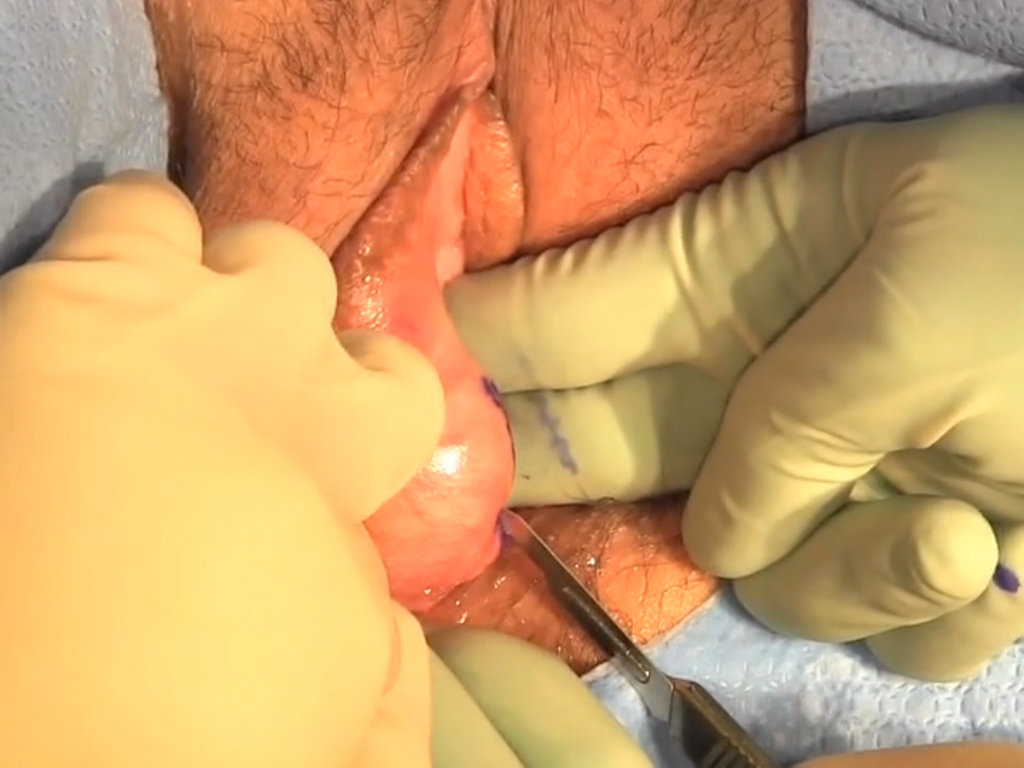
Key facts
- A Bartholin’s cyst can form when ducts near the vagina opening become blocked.
- Bartholin’s cysts are a collection of bacteria and pus.
- Symptoms may include discomfort or tenderness and pain, for example, during intercourse (sex).
- Diagnosis includes physical examination and testing of vaginal discharge.
- Treatment is not always needed but may include self-care, drainage or antibiotics.
What is a Bartholin’s cyst?
A Bartholin’s cyst is when the ducts of the glands at the entrance of the vagina become blocked and the fluid builds up to cause a cyst.
These glands are called Bartholin’s glands and are found on each side of the vaginal opening. They produce the fluid that normally helps lubricate the vagina.
The cyst usually forms on one side of the vaginal opening.
What causes a Bartholin’s cyst?
A Bartholin’s cyst is caused by blockage of the Bartholin gland.
Bartholin’s cysts can be associated with sexual activity, sexually transmitted infections (STI), direct injury to the area (for example, episiotomy or childbirth) or surgery. You are more likely to have a Bartholin’s cysts if you are a female of reproductive age or have previously had a Bartholin’s cyst or abscess.
Often, here is no known cause.
What are the symptoms of a Bartholin’s cyst?
Some people can have a Bartholin’s cyst and not notice it. For others, there will be some swelling on one side close to the opening of the vagina. If it is a large cyst, it may cause pain because of the size.
You may have other symptoms such as:
- a tender or painful lump near the vaginal entrance
- it may be uncomfortable when you urinate (wee)
- pain during intercourse
- discomfort when walking or sitting
- fever (if there is infection)
Usually, if the cyst grows and causes a lot of pain it could mean it has developed into a Bartholin’s abscess.
How is a Bartholin’s cyst diagnosed?
Your doctor will ask about your symptoms, ask if you have had a Bartholin’s cyst or abscess before and physically check the cyst. They may perform a pelvic exam and send samples of vaginal discharge to check for any infection. Your doctor might also do biopsy to rule out cancer, especially if you are over 40 years of age.
How is a Bartholin’s cyst treated?
If the cyst is not causing pain or discomfort, you may not need treatment.
Depending on the size of the Bartholin’s cyst, how painful it is and if it is infected, you may need to have the cyst drained or take a course of antibiotics.
Sometimes, surgery may be needed to open the cyst and stitch its walls to the surrounding skin so it stays open. This procedure is called marsupialisation. Alternately you may need to remove a gland if the Bartholin’s cysts keeps coming back.
Sometimes home treatment can help you manage the pain, and even make a cyst break open and drain by itself.
Self-care at home for your Bartholin’s cyst.
Here are some tips for self-care at home:
- Soaking your cyst in a shallow bath with added salt (around a teaspoon of salt per litre of water) a few times a day may help it go away on its own. This is sometimes called a ‘sitz bath’.
- If you are have mild pain or discomfort, you can take over-the-counter pain medicines — ask your pharmacist for advice.
When should I see my doctor?
If you are concerned, have severe pain, fever, or your cyst does not get better after 3 days of self-care you should see your doctor.
How do I prevent a Bartholin’s cyst?
There is no way to ensure you prevent a Bartholin’s cyst. Having safe sex and using a condom can help reduce the risk of a sexually transmitted infection (STI) or a Bartholin’s cyst forming. Good hygiene can also help.
Complications of Bartholin’s cyst
If the fluid inside the cyst becomes infected, it will form pus and become a Bartholin’s abscess. This may be very sore, swollen and tender. You may find it painful to walk or sit with a Bartholin’s abscess.
If you think your cyst has become infected, or if your pain is getting worse, ask your GP for a referral to a gynaecologist for treatment.



